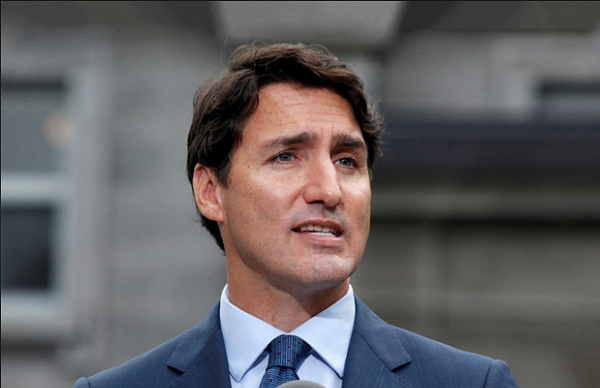Mayor-elect Carolyn Parrish plans to work with Ontario government to improve housing needs
The mayor-elect of Mississauga says she wants to work with Ontario Premier Doug Ford’s government to build more homes and plans to strike a panel to speed up the building approval process in her city.
Carolyn Parrish, a former long-time Liberal MP, was elected Monday in a competitive mayoral by-election that centred around the city’s housing needs – which she says are urgent.
“It’s got to be done fast, because we’re losing people every day,” she said in an interview Tuesday.
Mississauga, which has a population of more than 700,000 people west of Toronto and is Ontario’s third-largest urban centre, is plagued by an affordability crisis and housing shortage that have befallen big cities across the country, as costs to buy or rent have soared.
Ms. Parrish, who as a councillor championed multiplexes to add density to the city, campaigned on policies that included streamlining permitting as well as using office space and other commercial buildings for housing.
She arrives in the post as only the third mayor in nearly five decades. The by-election was triggered by the January resignation of Bonnie Crombie, now the Ontario Liberal leader. The previous mayor, the late Hazel McCallion, was in the role for 36 years.
Housing prices in Mississauga have risen sharply alongside the rest of other Greater Toronto Area: The average home price is more at about $1.1-million – an increase of nearly 40 per cent from just five years ago. Mississauga has the fourth-highest average rent price for vacant one-bedroom units in the country, according to Rentals.ca, at about $2,300; the city’s vacancy rate is 1.8 per cent.
Ms. Parrish’s first order of business when she becomes mayor at a yet-unspecified date is to strike a panel of developers, builders and municipal lawyers to closely examine the Municipal Act to find ways to streamline how the city is processing development applications.
Mississauga is behind on its housing targets – housing stats fell significantly in 2023 compared with a year earlier – and about 40,000 residents have fled over affordability concerns.
She said applications are taking “way too long” to approve, and that, while the city isn’t inundated with them, she anticipates demand will ramp up if interest rates continue to drop.
During the campaign, she also proposed developing housing at a large mall in the city, as well as converting office space into a mixed-use community.
To meet those goals, Ms. Parrish said she will need the province’s help. She said municipalities are more dependent on provincial governments than with Ottawa, and she said she’s aligned with Mr. Ford on key priorities such as building more homes and transit.
“I’m really looking forward to working with Mr. Ford’s crew,” Ms. Parrish said.
“Despite a few glitches along the way, which we are well aware of, I think they sincerely care about building Ontario.”
Ms. Parrish was a federal MP for 13 years. First elected in 1993, she was removed from the Liberal caucus in 2004 by then-leader Paul Martin over comments she made about the U.S. Despite her past as a Liberal, she said she feels “very comfortable” with her relationship with Mr. Ford.
“I tend to be a small ‘c’ conservative thinker, and I don’t carry any banners anymore. I’m not a Liberal and I’m not a Tory. I’m just a good, solid politician that’s concerned about the city,” she said.
“Whoever you have to get along with to get more for your city, that’s what you do.”
In a post on X on Monday, Mr. Ford congratulated the mayor-elect.
“I’m looking forward to working with you as we build a stronger Mississauga and a stronger Ontario,” he wrote.
Minister of Municipal Affairs and Housing Paul Calandra also said Tuesday he looks forward to working with Ms. Parrish to deliver on the shared goal of building more housing and to meeting with her in the coming weeks.
Ms. Parrish said she also plans to press Ottawa to help fund two-way GO Transit train service to Milton, which Mr. Ford belatedly committed to in this year’s provincial budget. In addition, Ms. Parrish said she’s interested in appointing a deputy mayor, and plans to use strong mayor powers only if applied to rezoning issues.
She said she has positive relationships with Peel Region’s other mayors – Brampton’s Patrick Brown and Caledon’s Annette Groves – which will strengthen its bargaining position with the province. She said the region’s social services, for instance, have been chronically underfunded for years.
In an interview, Mr. Brown said Ms. Parrish is a consensus-builder who earns the respect of her colleagues. He said he felt that with the previous mayor, Ms. Crombie, it was a competition, and expects a more “collegial” relationship now.
“Enough of Mississauga and Brampton and Caledon fighting. At the end of the day that hurts all of us,” he said.
Ms. Groves, who endorsed Ms. Parrish’s campaign, told The Globe and Mail the mayor-elect will help push for Peel’s fair share of funding.
The race to replace Ms. Crombie lasted three months and grew contentious at times. Ms. Parrish was highly criticized by her rivals after she withdrew from most leadership debates.
Ms. Parrish won with about 30 per cent of the vote. Her closest rivals were councillors Alvin Tedjo, who finished second; former provincial cabinet minister Dipika Damerla, who came third; and Stephen Dasko, who placed fourth.
This article was first reported by The Globe and Mail













